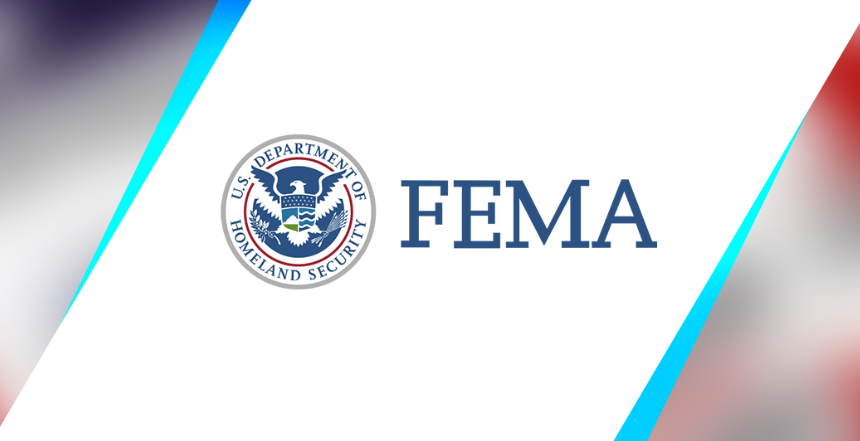
- Details
- By Native News Online Staff
As the Southeast recovers from the impacts of Hurricanes Milton and Helene, FEMA and federal agencies continue to support affected communities, working closely with state and local officials to aid survivors and coordinate recovery efforts.
Hurricane Milton Recovery Update
Although Hurricane Milton has passed, residents should remain vigilant by following local safety guidelines, such as avoiding downed power lines and practicing generator safety.
-
Debris Removal: FEMA is collaborating with state and local officials to develop debris removal plans for impacted areas. Residents should follow local guidance on debris removal in their communities.
-
Staffing: More than 600 FEMA personnel are deployed, providing support and resources in affected areas across Florida. Urban Search and Rescue teams, in partnership with state and local authorities, have conducted over 530 rescues and assists. Federal teams have also supported swift water rescues, emergency operations, volunteer management, and fire/HAZMAT responses.
-
Sheltering: Over 100 shelters currently house 13,000 people displaced by Milton, a significant decrease from the previous day.
-
Power and Cellular Restoration: Power outages have dropped from 3.3 million to 2.2 million as crews work around the clock to restore service. Efforts to restore cellular networks are also progressing.
-
Commodities: FEMA has delivered 1.6 million meals and 400,000 liters of water, with an additional 5.3 million meals and 3.9 million liters available for distribution.
Hurricane Helene Recovery Efforts
FEMA has approved $408 million in disaster assistance for Hurricane Helene survivors, along with $331 million in public aid.
-
Response Efforts: Federal teams are on the ground, working with state and local partners to assess damage and provide both immediate and long-term recovery support. Shelters remain open for displaced individuals, and Disaster Recovery Centers (DRCs) are available for survivors seeking assistance.
-
Personnel Deployment: Over 9,000 federal staff are deployed in affected areas, and FEMA has provided 12.6 million meals and 12.7 million liters of water.
-
Survivor Assistance: Those in affected areas of Georgia, Florida, North Carolina, South Carolina, Tennessee, and Virginia can apply for federal assistance through FEMA, including upfront funds for essential items, temporary housing, and repairs for storm-related damage.
State-Specific Support:
North Carolina
- Financial Support: FEMA has approved $71.7 million for over 52,000 households.
- Staffing: Over 1,000 FEMA staff and 250 Urban Search and Rescue personnel are aiding the state, with more than 3,200 survivors assisted.
- Sheltering: FEMA's Transitional Sheltering Assistance is housing 1,600 families, and 16 shelters currently house 700 people.
- Restoration: Over 95% of power has been restored, and cellular coverage is improving.
- Commodities: Mass feeding and water distribution continue, with mobile feeding units supporting affected areas.
Florida
- Financial Support: $154.2 million has been approved for over 51,000 households.
- Assistance Teams: FEMA specialists are canvassing affected communities, and inspectors are verifying damage. Eight Disaster Recovery Centers are open.
South Carolina
- Financial Support: $96 million has been approved for over 121,000 households.
- Assistance Teams: FEMA teams are helping survivors in areas without cell coverage or power. A hotline is available for medical needs shelters.
Georgia
-
Financial Support: $76 million has been approved for more than 92,000 households.
-
Assistance Teams: 130 FEMA team members are providing support, and a Disaster Recovery Center is open.
Virginia
- Financial Support: $2.2 million has been approved for over 1,000 households.
- Assistance Teams: FEMA teams are active in neighborhoods, with two Disaster Recovery Centers available.
Tennessee
- Financial Support: $7.8 million has been approved for over 1,800 households.
- Assistance Teams: 39 FEMA team members are helping survivors without cell coverage or power.
Voluntary Organizations and Resources
Voluntary organizations, including the American Red Cross, are providing personnel, shelter, and reunification services. Crisis Cleanup offers free tree removal, roof tarping, and mold mitigation. Residents can also access shelters, feeding sites, and other resources by visiting state-specific websites.
FEMA remains committed to supporting the recovery from these historic storms, working with federal, state, and local partners to ensure the safety and well-being of those affected.
More Stories Like This
Native News Weekly (August 25, 2024): D.C. BriefsNavajo Nation Mourns the Passing of Former Vice President Rex Lee Jim
Deb Haaland Earns Endorsement From Communications Workers of America Local 7076
University Soccer Standout Leads by Example
Two Native Americans Named to Democratic Congressional Campaign Committee's“Red to Blue” Program
Help us defend tribal sovereignty.
At Native News Online, our mission is rooted in telling the stories that strengthen sovereignty and uplift Indigenous voices — not just at year’s end, but every single day.
Because of your generosity last year, we were able to keep our reporters on the ground in tribal communities, at national gatherings and in the halls of Congress — covering the issues that matter most to Indian Country: sovereignty, culture, education, health and economic opportunity.
That support sustained us through a tough year in 2025. Now, as we look to the year ahead, we need your help right now to ensure warrior journalism remains strong — reporting that defends tribal sovereignty, amplifies Native truth, and holds power accountable.
 The stakes couldn't be higher. Your support keeps Native voices heard, Native stories told and Native sovereignty defended.
The stakes couldn't be higher. Your support keeps Native voices heard, Native stories told and Native sovereignty defended.
Stand with Warrior Journalism today.
Levi Rickert (Potawatomi), Editor & Publisher


